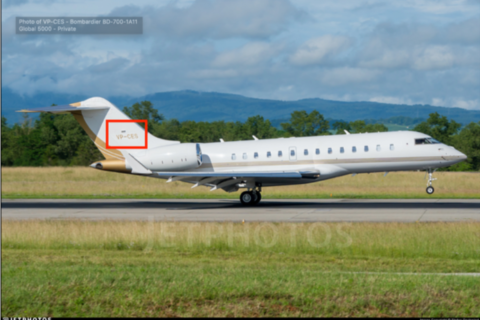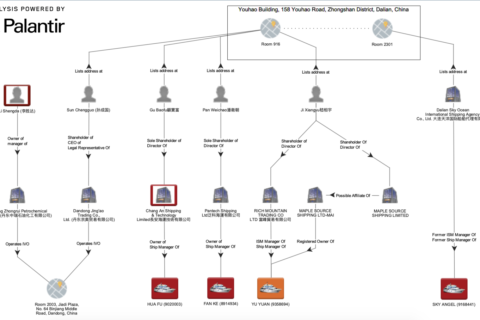The Odessa Network
A network of Ukraine-based individuals and logistics companies – referred to herein as the “Odessa Network” due to its key leadership being located in Odessa, Ukraine – is responsible for transporting weapons out of Russia and Ukraine on behalf of government sellers. Evidence suggests that some of these companies may transport weapons to the Assad regime in Syria, among other notorious violators of human rights.
Executive Summary #
A network of Ukraine-based individuals and logistics companies—referred to herein as the “Odessa Network” due to its key leadership being located in Odessa, Ukraine—is responsible for transporting weapons out of Russia and Ukraine on behalf of government sellers. Evidence suggests that some of these companies may transport weapons to the Assad regime in Syria, among other notorious violators of human rights.
The Odessa Network is a loose collection of logistics contractors for the governments of Russia and Ukraine, not independent arms dealers. Key companies and figures in Odessa include Kaalbye Group, Phoenix Trans-Servis, and their high-level political connections via key facilitators such as Boris Kogan. The companies work with state weapons export agencies such as Rosoboronexport and Ukrspetsexport. Odessa Network company leaders have personal and financial relationships with cabinetlevel officials in the Russian and Ukrainian governments, including a personal advisor to Putin and senior Russian militaryindustrial figures. The Odessa Network centers on a group of Odessa-based private companies that regularly move large arms shipments. Affiliated EU and Russian shipping firms such as Briese Schiffahrts (and its subsidiary BBC Chartering) and Balchart play an important specialized role in transporting particularly large or sensitive shipments. The network is deeply interconnected. Personnel and equipment frequently cycle between different companies, and many network members are family members, close friends, former classmates, etc.
The vast majority of weapons shipments leave from the Ukrainian port of Oktyabrsk, which was specially built by the USSR to move weapons (for example, this was the point of origin for Cuba-bound missiles in 1963). Despite being located in Ukraine, Oktyabrsk is functionally controlled by Russia—the port manager is a former Russian navy captain, and the port owner is a Kremlin-linked oligarch. Russian state weapons export agencies and Odessa Network firms maintain offices and personnel in Oktyabrsk.
The Ukrainian firms also engage in non-weapons business—freight brokering, crewing, chartering, etc.—and operate in global shipping centers such as Hamburg, Rio de Janeiro, Singapore, and Dubai. To protect their weapons shipments, some of the Ukrainian and Russian firms own or contract with multiple private maritime security companies, who also operate in African conflict zones.
Weapons and non-weapons shipping activities generate large profits for Odessa Network leaders. They put their money in both legitimate ventures and a well-known network of Panamamian shell companies and Latvian banks that have been used for money laundering by other entities, including the Sinaloa Cartel and Hezbollah. They also are active users of US and EU financial institutions.
Understanding and tracking Odessa Network activities is valuable in several ways. Since the Odessa Network consists of the prime transportation contractors for Russian and Ukrainian weapons export agencies, tracking their ship movements is an efficient way of determining weapon destinations. This is particularly helpful because Russia and Ukraine are the main weapons suppliers to countries such as Syria and the DRC. This report identifies over 20 previously undiscovered shipments of unknown cargo by Odessa Network-linked shipping companies from Oktyabrsk to Syria in 2012 and 2013. Finally, our report proposes an alternative hypothesis that examines the high volume of Syrian ships moving unknown cargo between Oktyabrsk and the Eastern Mediterranean in 2012.
The inclusion of any company in this report is not intended to imply participation in illegal activity, and a judgment as such is far beyond the purview of this research. Indeed, most of the activity described herein is perfectly legal. Rather, the goal of the report is simply to bring some measure of transparency to an otherwise opaque industry






